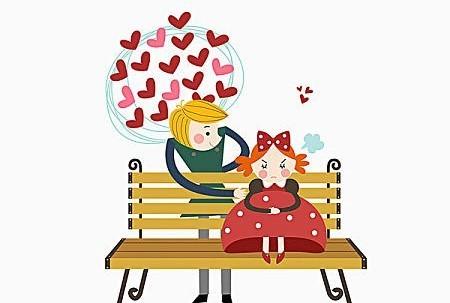Depression, on a global scale, plagues 350 million patients, and the number of depressed patients among our compatriots has exceeded 95 million, seriously affecting people's health and lives. Studies have shown that the lifetime prevalence of depression is about 17%, which means that 1 in 6 people may face depression. Depression usually requires long-term treatment, and patients and doctors need to face the challenge of depression after repeated diseases. So, what is the reason for the high incidence and incurability of depression? Let's combine the latest research results now to help you sort out your ideas.

Depression, the name of the disease, actually represents a highly heterogeneous manifestation of Class 1, symptoms and course of the disease, with significant individual differences. According to the latest disease classification standards, up to 227 symptomatic tissue patterns meet the diagnostic conditions for depression. Moreover, there are significant differences in the severity, development trajectory, and related changes of these symptoms. Therefore, in the face of depression, it is necessary to pay attention to the principle of individuation, and the rehabilitation experience of others may be difficult to successfully replicate.
Dutch scholars published a paper in the journal Psychiatric Observation in November 2018. Studies have shown that common depressive symptoms can be divided into 3 categories, for a total of 28 types. Category 1 is mood symptoms, which include 10 symptoms, which are manifested in decreased ability to feel happy, decreased overall interest, deterioration of mood, changes in mood response, anxiety or nervousness, irritability, feeling sad, sensitive to interpersonal relationships, limb-filled paralysis, panic or terror symptoms. Category 2 is neurological symptoms, a total of 14 types, including pain, constipation or diarrhea, early awakening, decreased energy, mood changes, difficulty falling asleep, weight gain or loss, increased or decreased appetite, etc. The third category is cognitive symptoms, a total of 4 types, mainly related to attention, views of the future, views of the self, suicidal thoughts.
Studies have found that the symptoms of depression, throughout the course of the disease, tend to show a situation of pressing the gourd to float up, one or more symptoms have just improved, and the other 1 or several symptoms will be aggravated. Therefore, the disease is long, the patient will feel that taking the drug has no effect, and even the more he takes the drug, the worse the condition, which reduces the compliance of the treatment, in short, it is no longer believe in the doctor, and even more do not believe in the effect of the drug. If the associated adverse drug reactions occur again at this time, it may cause the patient to abandon treatment halfway, making the symptoms more difficult to control. For this situation, some scholars suggest that it is possible to try to take enteric-coated sustained-release drugs to reduce adverse reactions and promote the continuation of treatment.
Coping with depression requires lifestyle coordination. For example, give full play to the complementary therapeutic role of diet. A scholar at the University of Pennsylvania, he recently published a paper in the Journal of Emotional Disorders. Studies have shown that mushrooms contain ergothionine, an antioxidant that protects the body against cellular and tissue damage and helps prevent and treat a variety of mental illnesses. Studies have found that people who regularly eat mushrooms have a lower risk of depression. In addition, mushrooms are rich in potassium, which can reduce anxiety levels and stimulate the expression of neurotrophic factors in the body, helping to prevent depression and its recurrence.
Coping with depression requires holistic healthy thinking. Recently, American scholars published a paper in the Progress fascicle of the Science series. The researchers collected 311 stool samples from 156 depressed patients and 155 healthy people, and after genetic analysis, found that 47 different bacteria were present in these samples, as well as 50 metabolites and 3 different bacteriophages. Studies have shown that in the stool of depressed patients, Bacteroides has a higher level of bacteria, indicating the presence of inflammation. Therefore, scholars believe that depression is not only an emotional response to life events, but also has a biological origin, promoting the overall health of the body, in order to effectively control depression.
Previous studies have suggested that lower levels of serotonin in the brain may be the cause of depression. Therefore, the current antidepressant drug mechanism is to inhibit the serotonin transporter, thereby increasing the concentration of serotonin, however, the drug effect may be delayed for several weeks. Recently, a paper was published in the journal Translational Psychiatry. Studies have shown that serotonin is a neurotransmitter that can affect almost all human behaviors, regulate the activity of the central nervous system and systemic activity, and play a key role in depression. Therefore, scholars believe that the future direction is to improve serotonin-related drug therapies to promote the improvement of depression.
Whoever loves, pass on health to whom.